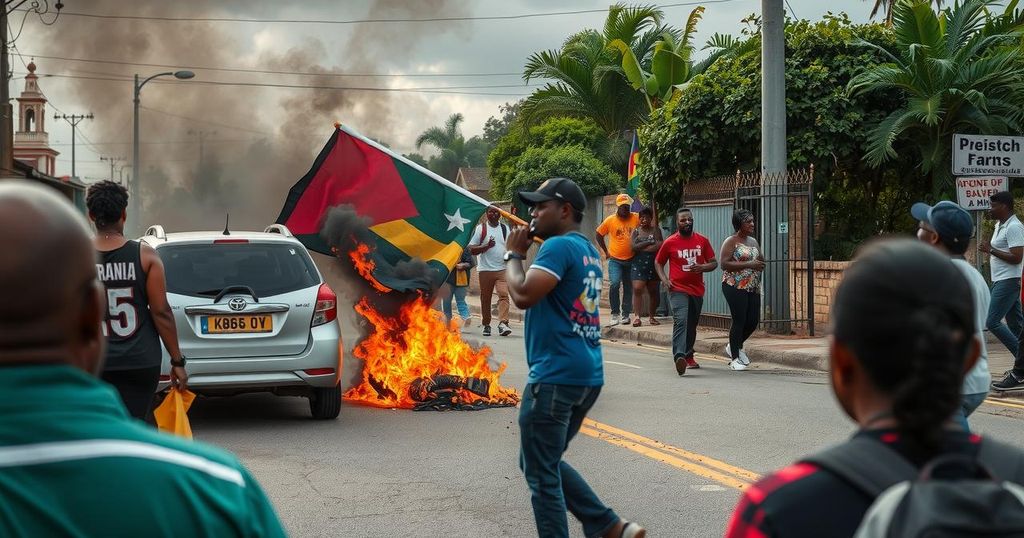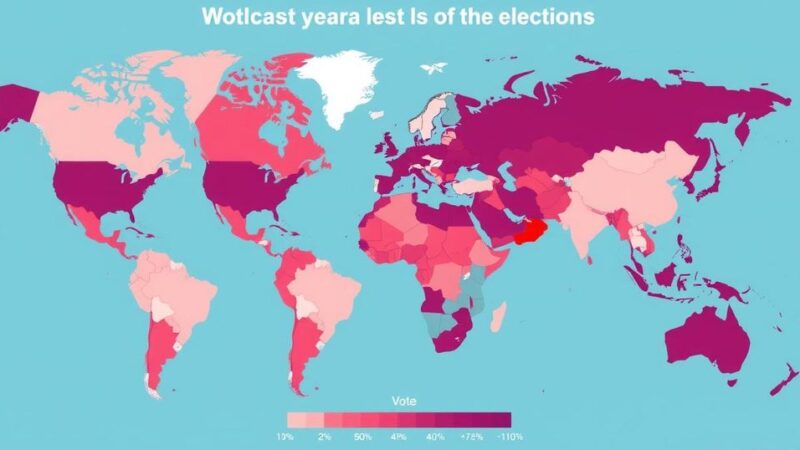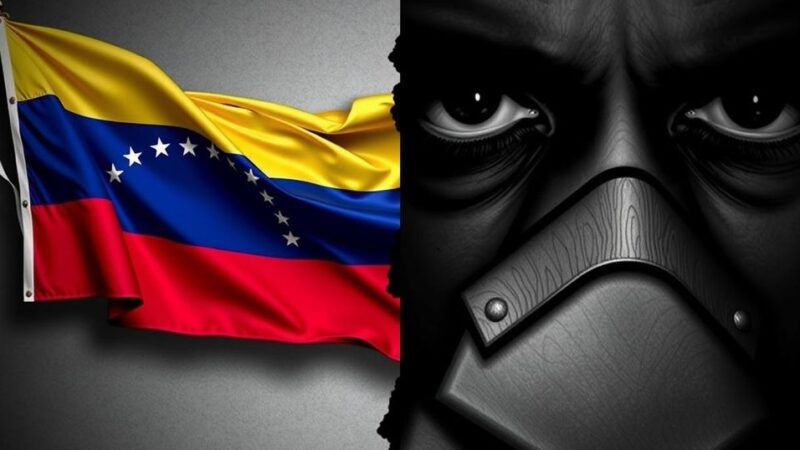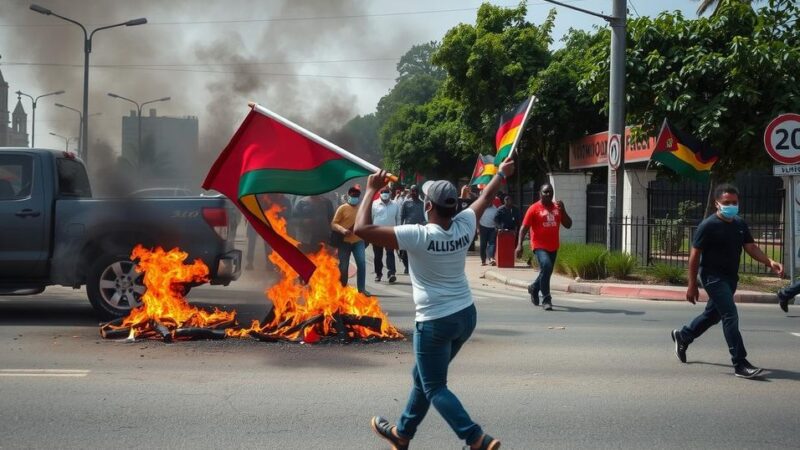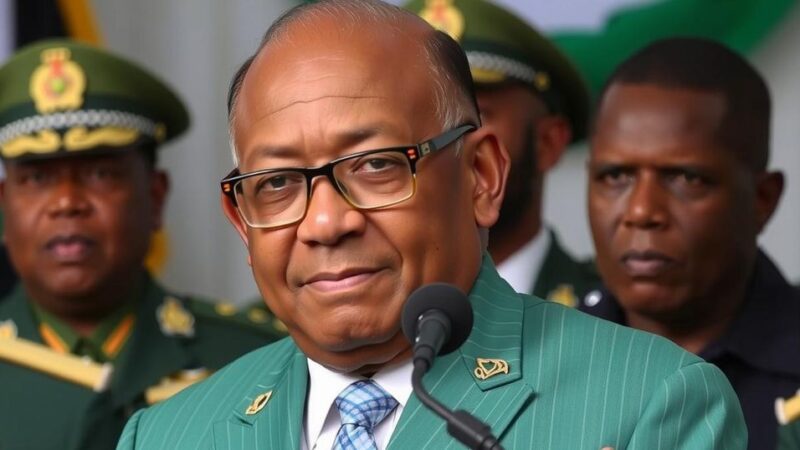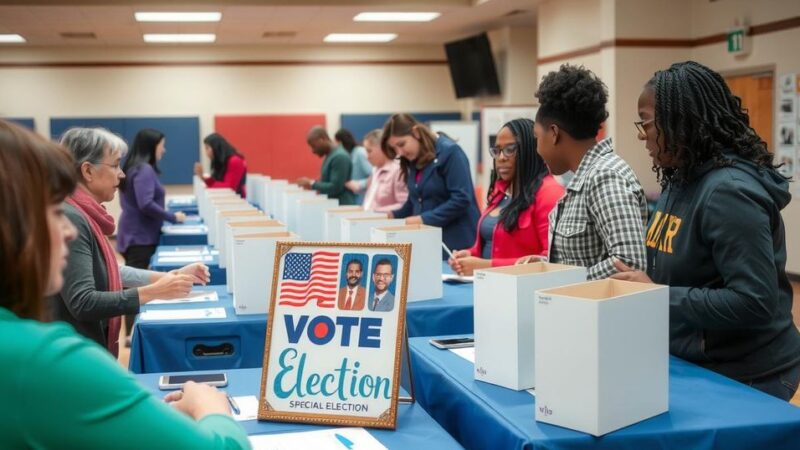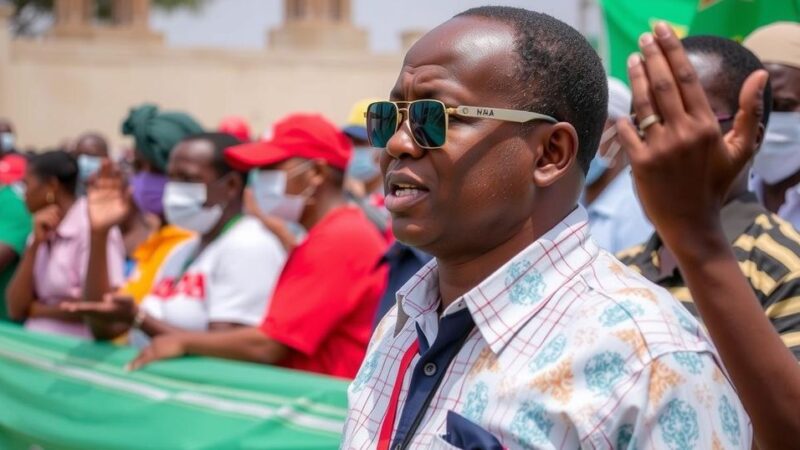Mozambique’s major cities, particularly Maputo and Matola, are experiencing severe unrest following disputed electoral results that confirmed the ruling Frelimo party’s continued dominance. Protests have escalated into violence, with looting and clashes with police, leading to a significant death toll. The situation has drawn international concern, with calls for dialogue and resolution amidst a backdrop of allegations of vote rigging and police misconduct.
Mozambique has experienced significant civil unrest following the confirmation of election results by the Constitutional Council, which maintained the ruling Frelimo party’s dominance for a 50th consecutive year. Major cities, particularly the capital, Maputo, and the suburb of Matola, have seen a halt in essential activities due to violent opposition protests that involve looting and clashes with law enforcement. The unrest was ignited after the court adjusted the ruling party’s percentage of votes received from nearly 71% to 65%, further aggravating tensions among opposing factions.
Protests escalated into violence with reports of arson, looting, and a rising death toll, including the loss of at least 11 lives in a fire at a looted food warehouse. Local residents organized barricades as a sign of resistance against the current administration, expressing their frustration with the ongoing political climate. Many believe that the essence of democracy is being compromised, fueling further unrest and demands for change. Police officials, however, contend that the chaos is largely a result of criminal activity, complicating the law enforcement response in the area.
The opposition, led by Venancio Mondlane, has attributed the violence to police actions and has called for continued demonstrations, although he has urged supporters to avoid criminal behavior. Mondlane alleged significant vote rigging and positioned himself to assert leadership on January 15, amidst claims of an alarming prison break that allowed over 6,000 inmates to escape, heightening the state of emergency.
The United Nations has expressed grave concern regarding the violence in Mozambique, urging all parties involved to engage in dialogue to resolve the crisis peacefully. UN Secretary-General Antonio Guterres advocated for de-escalation and the protection of human rights, emphasizing the necessity of constructive solutions for the future of the nation. This ongoing turmoil in Mozambique highlights the fragile state of the country’s democracy and the urgent need for political stability and dialogue.
In Mozambique, a political crisis has erupted following a disputed presidential election held in October 2024. The ruling Frelimo party has been in control since the country’s independence in 1975, and recent electoral results confirmed their continued hold on power, which has not been accepted by the opposition. The subsequent unrest reflects the deep-rooted discontent among various segments of the population regarding governance, democratic practices, and the conduct of law enforcement during public demonstrations. This situation has garnered international attention, with calls for peaceful resolution and dialogue. Understanding the historical context of Frelimo’s rule and the opposition’s grievances is crucial for comprehending the current unrest.
The recent unrest in Mozambique illustrates the volatile intersection of politics and civil society, with the public expressing their disapproval of a long-standing regime following controversial election results. The violence has resulted in tragic consequences, including loss of life and property destruction, prompting calls for immediate dialogue and intervention from international bodies. It emphasizes the pressing need for reform and the establishment of a political environment that genuinely reflects the will of the people. Until constructive dialogues take precedence over violence, the country remains at a pivotal crossroads.
Original Source: www.dw.com

